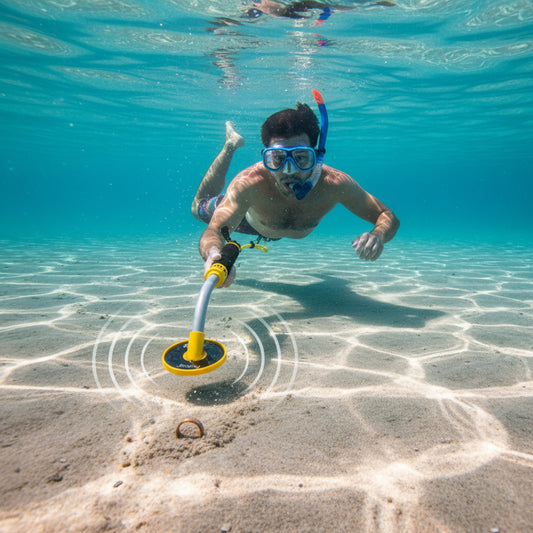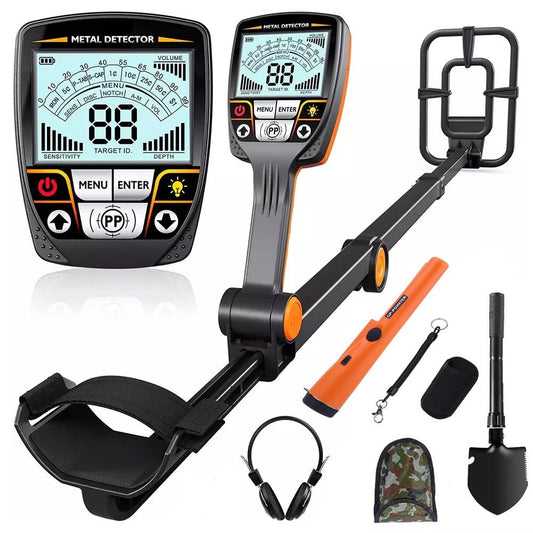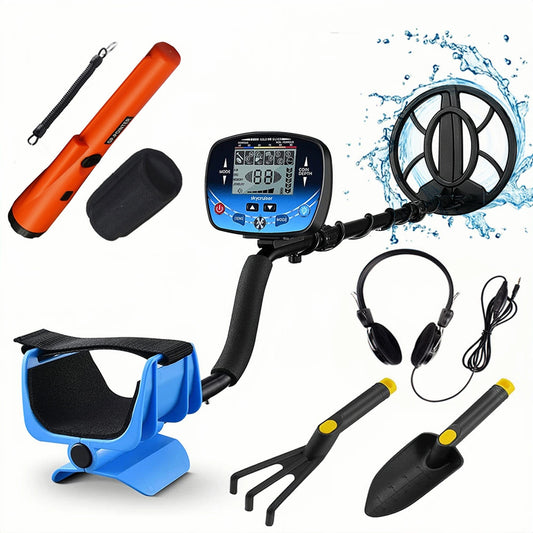
Where Can You Metal Detect in Texas? Top Locations for Treasure Hunters
Share
Texas is a treasure hunter's paradise, offering a vast array of landscapes and historical sites perfect for metal detecting.
But with so many options, you might wonder, "Where can you metal detect in Texas?" This comprehensive guide will explore the best places to metal detect in Texas, along with tips for finding hidden treasures and staying within the law.
Where Can You Metal Detect in Texas?

The Lone Star State offers numerous opportunities for metal detecting enthusiasts. Here's an overview of the types of places where you can legally and responsibly hunt for treasures:
1. Public Beaches

Texas boasts miles of Gulf Coast beaches that are ideal for metal detecting:
- Why Detect Here? Beaches are high-traffic areas where visitors often lose coins, jewelry, and other valuables.
- Best Spots: Galveston Island, South Padre Island, Corpus Christi Beach.
- Tips: Focus on the wet sand area after high tide or storms for freshly uncovered items.
2. City Parks
Many city parks across Texas allow metal detecting:
- Why Detect Here? Parks are frequented by visitors, making them great spots for lost coins and jewelry.
- Best Spots: Zilker Park (Austin), Hermann Park (Houston), Fair Park (Dallas).
- Tips: Check with local park authorities to confirm regulations before starting your hunt.
3. State Parks

Metal detecting in Texas state parks is allowed in certain areas with restrictions:
- Why Detect Here? State parks often have historical significance and less competition.
- Best Spots: Mustang Island State Park, Brazos Bend State Park.
-Tips: Obtain a permit from park authorities and follow all guidelines.
4. Private Land

Private property can be a goldmine for detectorists if you have permission:
- Why Detect Here? Private land often includes old homesteads, ranches, or farmland with historical artifacts.
- Tips: Always get written consent from landowners and agree on how finds will be handled.
5. Historical Sites
Texas is rich in history, from Spanish missions to Civil War battlefields:
- Why Detect Here? These areas can yield artifacts with significant historical value.
- Restrictions: Many historical sites are protected by law; detecting may require special permits or collaboration with archaeologists.
6. Rivers and Lakeshores
Waterways are excellent locations for finding lost items:
- Why Detect Here? Items lost by swimmers or boaters often accumulate near rivers or lakeshores.
- Best Spots: Colorado River-banks, Lake Travis shores.
- Tips: Use waterproof detectors and check local regulations.
Legal Considerations for Metal Detecting in Texas

Before heading out to any location, ensure you're complying with local laws:
-
State Parks Regulations: Many state parks require permits and restrict detecting to specific areas.
-
Historical Sites Protection: Detecting on protected historical sites is prohibited without special authorization.
-
Private Property Access: Always obtain permission before detecting on private land.
-
Treasure Reporting: Significant finds may need to be reported under the Texas Antiquities Code.
Learn all about the legality of metal detecting in texas.
Best Practices for Metal Detecting in Texas
To make the most of your metal detecting adventures while staying compliant:
-
Research Locations: Study maps and historical records to identify promising spots.
-
Obtain Permissions: Secure permits or landowner consent before detecting.
-
Respect Boundaries: Avoid restricted areas like archaeological sites or wildlife habitats.
-
Fill Your Holes: Leave the site as you found it to preserve its integrity.
Common Finds When Metal Detecting in Texas

Texas's diverse history makes it a hotspot for exciting discoveries:
-
Coins: Modern currency as well as Spanish silver coins from early explorers.
-
Jewelry: Rings, necklaces, and bracelets lost by visitors at beaches or parks.
-
Historical Relics: Tools, buttons, and artifacts from Civil War campsites or ranches.
-
Gold Nuggets: Found near old mining towns or rivers with gold panning history.
Tips for Successful Metal Detecting in Texas
Maximize your chances of finding treasures with these tips:
-
Time Your Hunts: Early mornings or after storms are ideal times to detect on beaches or open fields.
-
Use the Right Equipment: Invest in versatile detectors suitable for different terrains (e.g., waterproof models for beaches).
-
Join Local Clubs: Connect with experienced detectorists who can provide insights into the best locations.
-
Record Your Finds: Keep detailed notes on where you found items to improve future hunts.
Conclusion: Exploring Hidden Treasures Across Texas
So, where can you metal detect in Texas? From bustling city parks to serene riversides and historic beaches, Texas offers endless opportunities for treasure hunters willing to explore its diverse landscapes responsibly.
By understanding local laws, obtaining necessary permissions, and practicing ethical detecting, you can enjoy this fascinating hobby while contributing positively to your community and preserving the state's rich heritage.
Whether you're searching for coins on a Gulf Coast beach or uncovering relics from early settlers near an old homestead, Texas provides a wealth of possibilities for detectorists of all levels. So grab your detector, pack your gear, and set out to explore the Lone Star State—who knows what treasures await beneath its soil?
Happy hunting!




